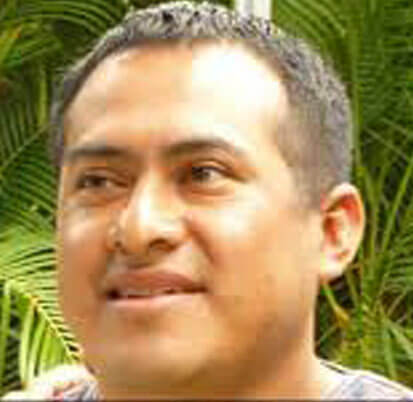BELIZE CITY, Thurs. Aug. 27, 2020– COVID-19 pandemic has affected every facet of our lives: the way we interact, travel, do business — even the way we eat.
Admittedly, the newsreels have been dominated by urban-centric narratives of long ATM lines, crowded food distribution stops and images of an undisciplined populace who are not complying with the public health measures, but what about our rural communities?
Last Friday, August 21, Prime Minister Dean Barrow; the Minister of Education, Patrick Faber; and the Director of Health Services, Dr. Marvin Manzanero, hosted a press conference to update the country on the policy measures being put in place to curb the country’s steep spike in cases. (On August 26, the total number of active cases was 695.)
In that presentation, the Minister of Education detailed the path forward that his ministry has charted for the start of the new school year following an extended shutdown of schools that started on March 20, 2020. His presentation pivoted on the deployment of distance learning platforms, by means of which students at all education levels will be engaging in online learning.
Preschool, primary school and home school classes are set to start on September 7. Secondary schools will start classes on October 5, 2020, while some tertiary-level institutions such as the University of Belize already resumed classes on August 17.
One of the major announcements which were made at this conference was that the Ministry of Education would be sourcing 8,000 devices that will be distributed to students to facilitate online learning. The minister was asked, however, about how difficult it might be for students in rural communities to access those online lessons due to limited electrification and internet access within those communities. Students, in some cases, have to travel to urban centers to attend school.
His response was that the ministry would be heavily reliant on partnerships with Digi to facilitate internet access, and that they will be looking at setting up generator or solar-supported charging stations to keep devices charged.
We spoke with Pablo Mis, Program Director of the Maya Leaders Alliance and the Toledo Alcalde Association, about the viability of that plan and the overall experience of rural communities in the context of the pandemic.
Mis says that the priority has been making sure that members of the community receive up-to-date information, so he is tasked with retrieving and summarizing information such as Statutory Instruments for 75 communities, in an effort to keep them vigilant and make them aware that the disease is here to stay and that they must continue to comply with the safety protocols and regulations, which are periodically adjusted.
In speaking about socioeconomic effects of the pandemic on those communities, he noted to us that many persons from rural communities travel to tourist centers as far north as San Pedro Town for work, and as a result of the lockdown, many returned to the communities without work, but more than that, the lockdown has prevented the cross-border trade of beans and corn, putting yet another dent in the revenue of families.
To alleviate that blow, Mis informed that the Maya Leaders Alliance bought surplus grains from farmers to distribute via a food program led by the local governance structure.
He made the point that another disadvantage these farmers have faced is that they operate within the informal sector and have thus not been able to qualify for the unemployment relief program.
He placed particular emphasis on the disadvantages they have faced in being able to qualify to receive food packages that have been distributed through government programs, since the applications for such programs are online, and many communities do not have internet access and more importantly, electrification.
They suggested to the National Oversight Committee that existing leadership structures within these communities such as alcaldes and village police, be utilized to make sure food reaches those who need it the most.
Finally, our conversation focused on the online school program being proposed by the Minister of Education. Mis explained that in his view, while the move is a progressive one, it will place students in rural communities at a disadvantage, not only because of possible inequity in the distribution of gadgets, but also, due to the fact that these communities do not have supporting infrastructures such as a strong cellphone signal, internet connectivity and electricity.
He cited, for example, that in terms of telecommunications, villagers would have to go on the highest hill to get a cell signal to receive texts, and that many of the leaders in his WhatsApp chat group don’t have numbers from Belize’s SMART or Digi, but rather, from Guatemala’s Tigo, simply because that’s the service through which they get the most available and stable signal.
This conversation with Mis highlighted the long-standing disadvantages faced by our rural communities, as well as the fragility of an economic infrastructure based on tourism and informal trade.
It also highlighted the importance of the utilization of local governance in the national response to a crisis, and in addition, the importance of self-sufficiency in terms of food security. There is much to learn from indigenous and rural communities about how we navigate the perils of a pandemic, since they have been at the frontline of crises that have resulted from biodiversity loss and climate change, and have displayed a spirit of self-leadership and stalwart environmental stewardship in the face of genocide and the threat to land rights.

